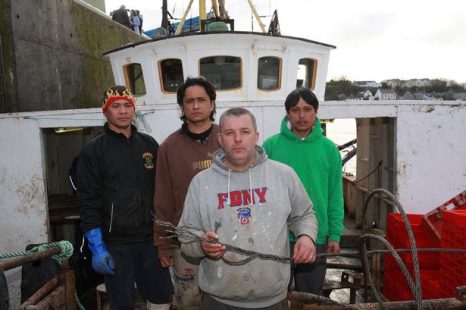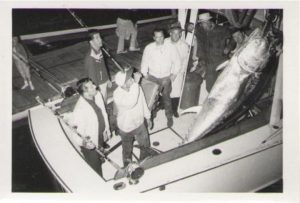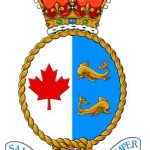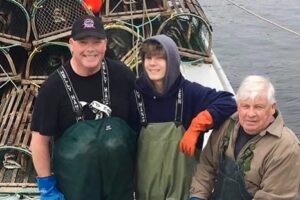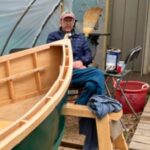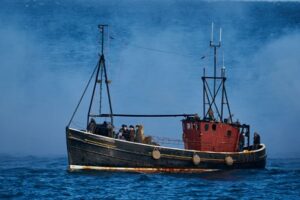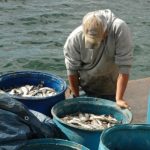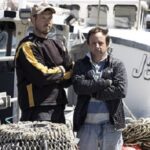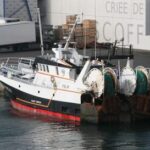Daily Archives: October 13, 2016
MSA – Fishing rule gives regional councils more flexibility on catch limits
 The rule, already under fire from environmental groups in a rare conflict with the administration, could help mollify the recreational fishing industry and its Republican allies in Congress. They’ve criticized the administration for not relaxing restrictions on catches, given that many fish stocks have rebounded dramatically over the past few years. Officials with the fisheries division of the National Oceanic and Atmospheric Administration, said the change, years in the making, strikes an appropriate balance between current law, which has helped rescue dozens of once over-fished stocks, and the needs of the economically vital recreational and commercial industry. Some environmental groups oppose the change, saying that giving more “flexibility” to the eight regional councils that set catch limits in federal waters could soften protections that have worked well. “Unfortunately, the new rules weaken the foundations of U.S. sustainable fisheries management,” said Meredith Moore, director of the fish conservation program at Ocean Conservancy. “By allowing risky management decisions that leave stocks at low levels, we leave fish populations and fishing communities vulnerable.” Read the story here. Read the NOAA press release – NOAA announces revisions to federal fishery management guidelines click here 20:07
The rule, already under fire from environmental groups in a rare conflict with the administration, could help mollify the recreational fishing industry and its Republican allies in Congress. They’ve criticized the administration for not relaxing restrictions on catches, given that many fish stocks have rebounded dramatically over the past few years. Officials with the fisheries division of the National Oceanic and Atmospheric Administration, said the change, years in the making, strikes an appropriate balance between current law, which has helped rescue dozens of once over-fished stocks, and the needs of the economically vital recreational and commercial industry. Some environmental groups oppose the change, saying that giving more “flexibility” to the eight regional councils that set catch limits in federal waters could soften protections that have worked well. “Unfortunately, the new rules weaken the foundations of U.S. sustainable fisheries management,” said Meredith Moore, director of the fish conservation program at Ocean Conservancy. “By allowing risky management decisions that leave stocks at low levels, we leave fish populations and fishing communities vulnerable.” Read the story here. Read the NOAA press release – NOAA announces revisions to federal fishery management guidelines click here 20:07
The Gloucester Fisherman’s and Seaman’s Widows and Orphan’s Aid Society Fund
 In 1865, community members formed the Gloucester Fisherman’s and Seaman’s Widows and Orphan’s Aid Society Fund to help fishermen’s families. The Society continues to help widows and orphans of Cape Ann fishermen that have lost their lives, to this day. When the Society receives an application for funding, it is reviewed, and if the applicant meets the requirements, a monthly benefit of $125.00, and an annual Christmas bonus is awarded. If anyone is interested in applying for this, Please write to Sam Parisi, 108 Commercial Street, Gloucester, Ma. 01930, or email him at [email protected] 19:09
In 1865, community members formed the Gloucester Fisherman’s and Seaman’s Widows and Orphan’s Aid Society Fund to help fishermen’s families. The Society continues to help widows and orphans of Cape Ann fishermen that have lost their lives, to this day. When the Society receives an application for funding, it is reviewed, and if the applicant meets the requirements, a monthly benefit of $125.00, and an annual Christmas bonus is awarded. If anyone is interested in applying for this, Please write to Sam Parisi, 108 Commercial Street, Gloucester, Ma. 01930, or email him at [email protected] 19:09
Coast Guard Aircrew Medevacs Crewman from Fishing Vessel West of Port Orford, Ore.
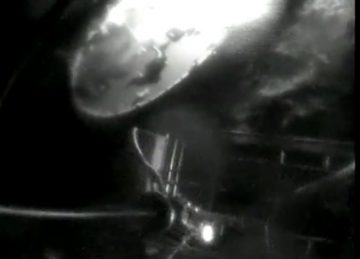 A Coast Guard aircrew medically evacuated a crewman who reportedly fractured his arm on a 285-foot fishing vessel 25-miles west of Port Orford, Thursday morning. An MH-65 helicopter crew from Coast Guard Sector North Bend hoisted the 74-year-old male from the fishing vessel American Triumph and transferred him to local medical services waiting in Coos Bay. Coast Guard watchstanders at Sector North Bend were notified at 3 a.m. and directed the launch of the Dolphin crew. The aircrew arrived on scene at 4:41 a.m. and transferred the patient to EMS at 5:28 a.m The weather at the time of the rescue was reported with low visibility, heavy rain, 50 knot gusting winds and 15-20 foot sea swells. Watch video here 17:23
A Coast Guard aircrew medically evacuated a crewman who reportedly fractured his arm on a 285-foot fishing vessel 25-miles west of Port Orford, Thursday morning. An MH-65 helicopter crew from Coast Guard Sector North Bend hoisted the 74-year-old male from the fishing vessel American Triumph and transferred him to local medical services waiting in Coos Bay. Coast Guard watchstanders at Sector North Bend were notified at 3 a.m. and directed the launch of the Dolphin crew. The aircrew arrived on scene at 4:41 a.m. and transferred the patient to EMS at 5:28 a.m The weather at the time of the rescue was reported with low visibility, heavy rain, 50 knot gusting winds and 15-20 foot sea swells. Watch video here 17:23
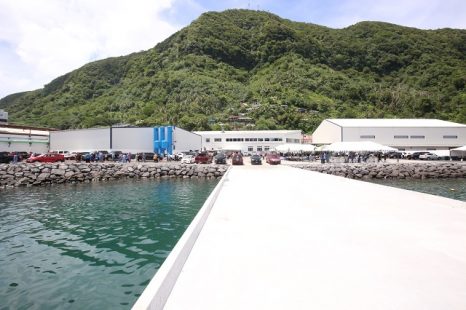
Tri Marine Group announces closure of Samoa Tuna Processors cannery December 11
Employees of Samoa Tuna Processors are learning that the cannery is shutting down indefinitely December 11 due to “adverse business conditions”. The $70 million cannery was officially opened in January of last year, but only started production a few months later because of delayed shipping due to industrial action on the west coast. The closure would put close to 1,000 workers out of jobs and send ripple effects throughout the community and also Samoa where the majority of production employees are from. Renato Curto, CEO of the Tri Marine Group said in a statement, “This is an incredibly difficult decision and one we make with a great deal of reluctance. “Our hearts go out to STP’s employees, suppliers, service providers and everyone else who depends on STP’s operations.” The statement said the challenging economics of canning tuna in American Samoa combined with external factors facing STP make Tri Marine’s private-label focused business model for operating the plant economically unsustainable in today’s market. Tri Marine is currently evaluating alternatives for the facility including outright sale, preferably to a strategic buyer that would minimize job losses. Read the rest here 17:04
Yukon kings are on the rebound, Canadians, however, are fishing less
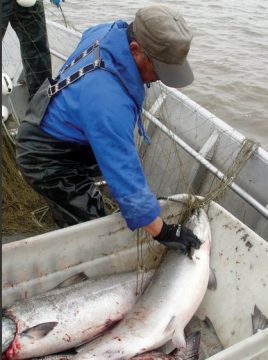 Yukon River chinook stocks are on the upswing, according to a season summary, though not everybody is fishing for the surplus. Holly Carroll, the area management biologist for the Yukon River section of the Alaska Department of Fish and Game, said the painful restrictions on subsistence harvests have paid off. “We wouldn’t have made escapement goals at all if we hadn’t restricted harvest,” Carroll said. “We have to restrict the harvest just to meet the bare minimum for sustaining the run. The restrictions in the subsistence fishery have helped to build the numbers back up.” With 176,895 fish past the sonar counter at Pilot Station, the 2016 chinook run has nosed back up to the most recent 20-year average of 178,000. Along with total run numbers, the amount of chinook into Canada is improving. However, First Nations communities and Canada fisheries managers have different ideas than Alaska, and much of the run sent over the border went unharvested. A major goal of ADFG Yukon River management aims to send between 42,500 and 55,000 chinook salmon over the Canadian border at Eagle as per the Pacific Salmon Treaty. Read the story here 15:54
Yukon River chinook stocks are on the upswing, according to a season summary, though not everybody is fishing for the surplus. Holly Carroll, the area management biologist for the Yukon River section of the Alaska Department of Fish and Game, said the painful restrictions on subsistence harvests have paid off. “We wouldn’t have made escapement goals at all if we hadn’t restricted harvest,” Carroll said. “We have to restrict the harvest just to meet the bare minimum for sustaining the run. The restrictions in the subsistence fishery have helped to build the numbers back up.” With 176,895 fish past the sonar counter at Pilot Station, the 2016 chinook run has nosed back up to the most recent 20-year average of 178,000. Along with total run numbers, the amount of chinook into Canada is improving. However, First Nations communities and Canada fisheries managers have different ideas than Alaska, and much of the run sent over the border went unharvested. A major goal of ADFG Yukon River management aims to send between 42,500 and 55,000 chinook salmon over the Canadian border at Eagle as per the Pacific Salmon Treaty. Read the story here 15:54
Japanese Fishermen Painted as ‘Sadists’ in Oscar-Winner “The Cove”
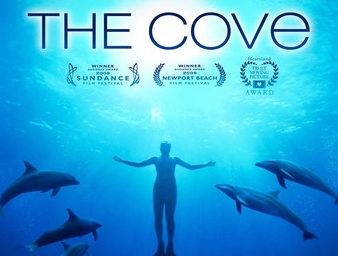 A group of Japanese fishermen have broken their silence over a controversial annual dolphin kill that was the focus of the Oscar-winning documentary “The Cove”. “In the film we are portrayed like a town of criminals,” said Yoshiharu Kai, head of the Taiji Fishermen’s Union. “It’s an interesting film but it’s not a truthful film.” This week marked the first time representatives of the southwestern Japanese fishing village of Taiji have spoken to international media about the impact felt in their community after the release of “The Cove”. The Louie Psihoyos-directed documentary caused an international uproar following its release in 2009. The film takes an unflinching look at a practice that dates back 400 years, with close-up scenes of slaughter after dolphins are driven close in to shore, and of disputes between the fishermen and environmental protesters. Highly publicized and widespread social and international condemnation of the kill followed the release of the film. Concerns were also raised over the methods used by the filmmakers to capture footage used, and about the film’s general depiction of Japanese people. Read the story here 12:27
A group of Japanese fishermen have broken their silence over a controversial annual dolphin kill that was the focus of the Oscar-winning documentary “The Cove”. “In the film we are portrayed like a town of criminals,” said Yoshiharu Kai, head of the Taiji Fishermen’s Union. “It’s an interesting film but it’s not a truthful film.” This week marked the first time representatives of the southwestern Japanese fishing village of Taiji have spoken to international media about the impact felt in their community after the release of “The Cove”. The Louie Psihoyos-directed documentary caused an international uproar following its release in 2009. The film takes an unflinching look at a practice that dates back 400 years, with close-up scenes of slaughter after dolphins are driven close in to shore, and of disputes between the fishermen and environmental protesters. Highly publicized and widespread social and international condemnation of the kill followed the release of the film. Concerns were also raised over the methods used by the filmmakers to capture footage used, and about the film’s general depiction of Japanese people. Read the story here 12:27
North Carolina’s seafood deliveries continue in wake of Hurricane Matthew
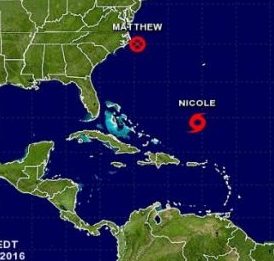 While the flooding continues in North Carolina and portions of major highways remain closed, seafood distributors and wholesalers in the state are continuing to make deliveries following Hurricane Matthew’s landfall. “It is challenging to get to some places, but overall, we are getting our orders out. Our drivers are finding ways to do it,” said a source with the Charlotte, N.C, office for Inland Seafood, a major seafood distributor based in Atlanta. Major portions of Interstate 95 and Interstate 40 are still closed, causing headaches for seafood deliveries to restaurants and retailers. And some businesses along the N.C. coast were without power until 11 October and 12 October. “We were spared with the winds, but with all that water coming in – and rivers at a record high –we dealing with the aftermath,” said Lin Peterson, co-owner of Raleigh, N.C.-based Locals Seafood, a wholesaler, retailer and community supported fishery (CSF). “We just focus on seafood off the N.C. coast, so we are really affected when this happens.” Read the story here 11:49
While the flooding continues in North Carolina and portions of major highways remain closed, seafood distributors and wholesalers in the state are continuing to make deliveries following Hurricane Matthew’s landfall. “It is challenging to get to some places, but overall, we are getting our orders out. Our drivers are finding ways to do it,” said a source with the Charlotte, N.C, office for Inland Seafood, a major seafood distributor based in Atlanta. Major portions of Interstate 95 and Interstate 40 are still closed, causing headaches for seafood deliveries to restaurants and retailers. And some businesses along the N.C. coast were without power until 11 October and 12 October. “We were spared with the winds, but with all that water coming in – and rivers at a record high –we dealing with the aftermath,” said Lin Peterson, co-owner of Raleigh, N.C.-based Locals Seafood, a wholesaler, retailer and community supported fishery (CSF). “We just focus on seafood off the N.C. coast, so we are really affected when this happens.” Read the story here 11:49
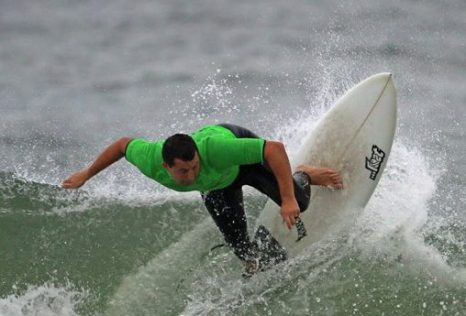
New Jersey Scalloper Nick Rossi makes the scene at the 10th Annual Clam Jam!
For 10 years now, local apparel company Jetty, has held its Clam Jam (click for standings and great photos) each fall. At its root, it’s a surf contest. But it’s also a celebration of Island surfing and the local community at large. One of the aspects of the contest that keeps it a beloved event is the fact that it’s run “on call,” meaning the date of the Clam Jam is determined by the waves. Once the window period opens the first weekend after Chowderfest, it can be run any Saturday or Sunday with good swell and conditions. Surfers and spectators get excited year after year because of the quality waves. Alternatively, wives, girlfriends, and families have a running joke about not being able to make plans through the whole month of October, at the possibility that the Clam Jam might run. Rossi has surfed nine of 10 Clam Jams and won with John Bonner back in 2010. He had just gotten back from an 11-day fishing trip at daybreak on Saturday morning. Read the story here 09:20
Pacific Bluefin Tuna Heads Toward Protection
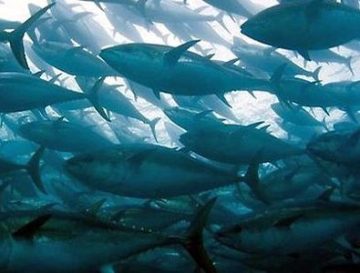 Thirteen conservation groups and a former National Fisheries biologist petitioned for federal protection for Pacific bluefin tuna, and the marine agency agreed listing may be warranted. The National Marine Fisheries Service (NMFS) announced Tuesday that it will begin a 12-month status review of the iconic fish as the first step in the long process to secure Endangered Species Act protection for the overfished species. The Center for Biological Diversity, a frequent petitioner and litigator on behalf of imperiled species, was joined by Earthjustice, Defenders of Wildlife, WildEarth Guardians, Sierra Club, Turtle Island Restoration Network, the Ocean Foundation, Center for Food Safety, Greenpeace, Mission Blue, Recirculating Farms Coalition, The Safina Center, SandyHook SeaLife Foundation, and Jim Chambers, a retired NMFS biologist, owner of Prime Seafood sustainable seafood restaurant supply company and member of the Seafood Choices Alliance. Read the rest here 08:42
Thirteen conservation groups and a former National Fisheries biologist petitioned for federal protection for Pacific bluefin tuna, and the marine agency agreed listing may be warranted. The National Marine Fisheries Service (NMFS) announced Tuesday that it will begin a 12-month status review of the iconic fish as the first step in the long process to secure Endangered Species Act protection for the overfished species. The Center for Biological Diversity, a frequent petitioner and litigator on behalf of imperiled species, was joined by Earthjustice, Defenders of Wildlife, WildEarth Guardians, Sierra Club, Turtle Island Restoration Network, the Ocean Foundation, Center for Food Safety, Greenpeace, Mission Blue, Recirculating Farms Coalition, The Safina Center, SandyHook SeaLife Foundation, and Jim Chambers, a retired NMFS biologist, owner of Prime Seafood sustainable seafood restaurant supply company and member of the Seafood Choices Alliance. Read the rest here 08:42
The Kodiak fish debate: Senate candidates square off
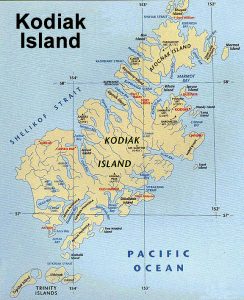 Republican U.S. Sen. Lisa Murkowski squared off with her challengers Wednesday for the first time, fielding criticism and questions from Democrat Ray Metcalfe and independents Margaret Stock and Breck Craig at the biennial Kodiak fish debate. Moderators quizzed the candidates on nuts-and-bolts fisheries policy during the lively, two-hour discussion at the port town. And a few only-in-Alaska questions were thrown in as well, like when the candidates were asked to name their personal seafood preferences. Murkowski, who sported Xtratuf boots and a fish pin, was quick to demonstrate her familiarity with fish-specific issues like discharge rules, Alaska’s aging fishing crews, and Canadian mines that threaten the state’s fish habitat. But her rivals tried to put her on the defensive by touting their own fisheries experience, highlighting Congress’ dysfunction, and stressing how seriously they take climate change, which threatens Alaska fisheries through the process of ocean acidification. Joe Miller, the Republican-turned-Libertarian candidate, did not attend even after criticizing the incumbent senator for “hiding” from the public by not participating in more debates. Read the rest here 08:27
Republican U.S. Sen. Lisa Murkowski squared off with her challengers Wednesday for the first time, fielding criticism and questions from Democrat Ray Metcalfe and independents Margaret Stock and Breck Craig at the biennial Kodiak fish debate. Moderators quizzed the candidates on nuts-and-bolts fisheries policy during the lively, two-hour discussion at the port town. And a few only-in-Alaska questions were thrown in as well, like when the candidates were asked to name their personal seafood preferences. Murkowski, who sported Xtratuf boots and a fish pin, was quick to demonstrate her familiarity with fish-specific issues like discharge rules, Alaska’s aging fishing crews, and Canadian mines that threaten the state’s fish habitat. But her rivals tried to put her on the defensive by touting their own fisheries experience, highlighting Congress’ dysfunction, and stressing how seriously they take climate change, which threatens Alaska fisheries through the process of ocean acidification. Joe Miller, the Republican-turned-Libertarian candidate, did not attend even after criticizing the incumbent senator for “hiding” from the public by not participating in more debates. Read the rest here 08:27






